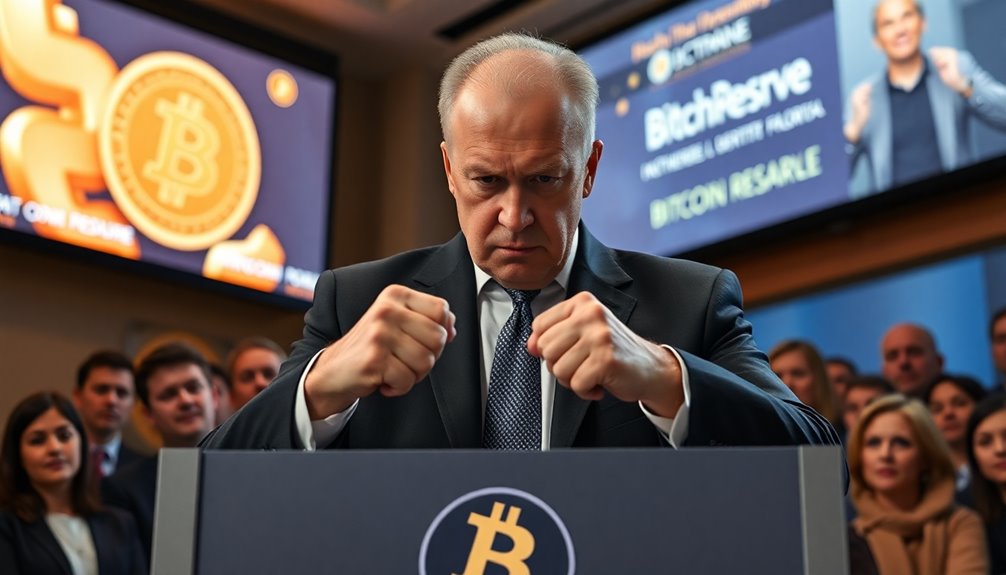You've likely heard Peter Schiff's recent criticisms about the idea of a U.S. Bitcoin reserve. He argues it's a risky concept that could shake up the economy. Schiff doesn't hold back, calling out the Bitcoin community for what he sees as misleading tactics. But what are the implications of his stance on cryptocurrencies? And how might this influence investor sentiment moving forward?

Despite initial comments that seemed to endorse a Bitcoin reserve, Peter Schiff has firmly reversed his stance, emphasizing that his words were misinterpreted. He took to social media to clarify his position, criticizing the misinformation spread by Bitcoin promoters. Schiff's history as a vocal critic of cryptocurrencies adds depth to his recent comments, where he called the notion of a U.S. Bitcoin Reserve a dangerous idea that could destabilize the economy. Gold IRAs offer tax-deferred growth, which is a stark contrast to the volatility of cryptocurrencies.
You might recall how Schiff's initial remarks sparked a wave of optimism in the crypto community. Bitcoin's price surged, trading volumes skyrocketed, and the Crypto Fear & Greed Index shifted toward greed, indicating a newfound market enthusiasm. However, Schiff quickly dampened that excitement by reiterating his long-standing skepticism about Bitcoin's viability as a reserve asset. He labeled the promotional tactics used by Bitcoin advocates as fraudulent, claiming they misled the public into thinking his comments were actually supportive.
Schiff's initial comments fueled crypto optimism, but he swiftly reaffirmed his skepticism about Bitcoin as a viable reserve asset.
Schiff doesn't shy away from pointing out Bitcoin's volatility, which he believes poses significant risks to economic stability. He argues that a Bitcoin reserve could lead to dollar devaluation, a concern that resonates in financial circles. While he acknowledges Bitcoin's status as "digital gold," he remains unconvinced about its potential as a reliable reserve. This skepticism has led him to caution against any rush toward incorporating cryptocurrencies into official reserves. Notably, Schiff's critiques were amplified by his recent statements regarding the Bitcoin community's behavior.
In the wake of Schiff's comments, other cryptocurrencies like Ethereum and Litecoin also experienced price increases, reflecting the broader market reaction. Yet, Schiff's critical voice stands out, especially with proposals from figures like Donald Trump, who included various cryptocurrencies in a potential U.S. crypto reserve. Schiff's criticism extended to assets like XRP, questioning their necessity in a reserve given their primary focus on transactional efficiency.
As you navigate the complexities of cryptocurrency investments, it's essential to consider Schiff's viewpoint. His emphasis on liquidity risks and the unpredictable nature of digital assets serves as a reminder of the challenges in viewing these currencies as safe reserves.
In a market that often thrives on hype, Schiff's strong stance against Bitcoin reserves highlights the ongoing debate about the role of cryptocurrencies in the financial landscape. Ultimately, his comments serve as a cautionary tale about the potential pitfalls of placing too much trust in volatile assets.









